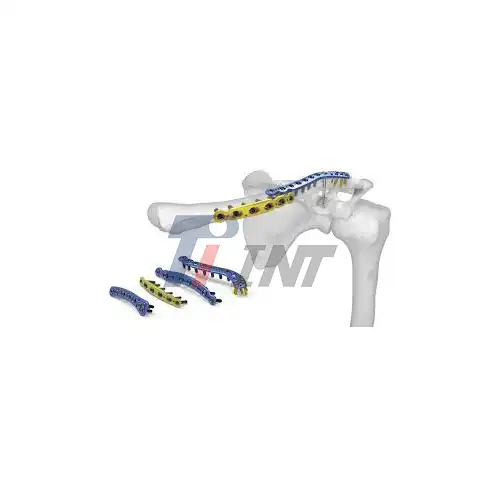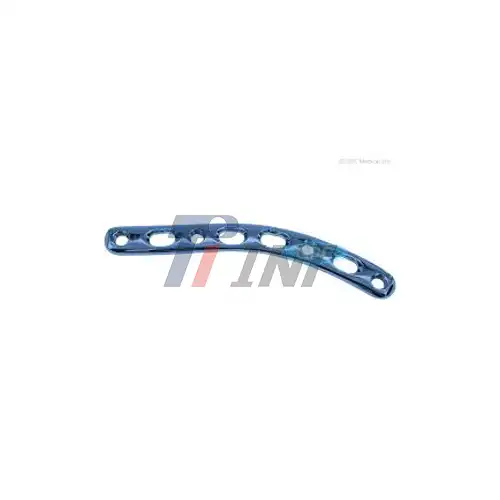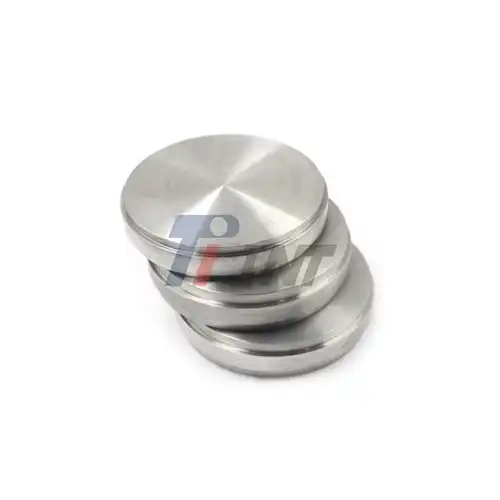The Revolutionary Impact of Titanium in Medical Implants
The coming of titanium in therapeutic inserts has stamped a critical breakthrough in the field of orthopedic and reconstructive surgery. Therapeutic titanium plates, in specific, have risen as a game-changer, advertising unparalleled points of interest over conventional materials. These plates are created from immaculate titanium or titanium combinations such as Ti6Al4V and Ti6Al4V ELI, each chosen for its particular properties and applications.
One of the most remarkable aspects of medical titanium plates is their excellent biocompatibility. This means that the human body readily accepts these implants without triggering adverse reactions or rejection responses. The biocompatibility of titanium stems from its ability to form a stable oxide layer on its surface, which acts as a protective barrier between the implant and surrounding tissues. This unique characteristic significantly reduces the risk of complications and ensures a smoother recovery process for patients.
Additionally, the strength-to-weight proportion of titanium is genuinely exceptional. In spite of being inconceivably solid, titanium is strikingly lightweight, making it a perfect fabric for restorative inserts. This property permits specialists to plan plates that are both strong enough to bolster mending bones and light enough to minimize distress for the patient. The diminished weight too implies less strain on encompassing tissues, which can contribute to speedier mending and make strides in understanding results.
Customization and Versatility in Surgical Applications
The flexibility of restorative titanium plates is another calculation that sets them apart in the domain of surgical inserts. These plates can be customized to meet particular surgical prerequisites, with thicknesses extending from as lean as 0.5 mm to as thick as 100 mm. This adaptability in measuring permits specialists to select the most suitable plate for each special case, guaranteeing ideal bolster and fit.
Width customization is equally impressive, with plates available up to 1000mm wide. This range of options enables medical professionals to address a wide array of surgical needs, from small, delicate procedures to larger, more complex operations. The length of these plates can also be tailored to the exact specifications required for each patient, further enhancing their versatility.
Surface finish is another crucial aspect of medical titanium plates. They are typically available with polished or acid-cleaned surfaces, each offering distinct advantages depending on the specific application. The polished finish provides a smooth surface that can reduce friction and minimize tissue irritation, while the acid-cleaned surface can enhance osseointegration, promoting better bonding between the implant and bone tissue.
Durability and Longevity of Medical Titanium Plates
When it comes to surgical implants, durability is paramount. Medical titanium plates excel in this aspect, offering exceptional resistance to corrosion even in the harsh environment of the human body. This corrosion resistance is due to the formation of a passive oxide layer on the surface of the titanium, which acts as a protective barrier against chemical attacks.
The longevity of titanium implants is truly remarkable. Unlike some other materials that may degrade over time, titanium plates maintain their structural integrity for years, often lasting the lifetime of the patient. This durability not only ensures the long-term success of the surgical procedure but also reduces the need for revision surgeries, which can be both costly and risky for patients.
Furthermore, the stability of titanium in the body means that it does not release harmful ions or particles over time. This is crucial for preventing systemic toxicity or local tissue reactions that could compromise the patient's health or the success of the implant. The inert nature of titanium contributes to its excellent track record in long-term implantation scenarios.
Resistance to Fatigue and Mechanical Stress
Medical titanium plates are engineered to withstand the dynamic forces and stresses encountered in the human body. Whether used in load-bearing applications like spinal fusion or in areas subject to repeated motion, these plates demonstrate impressive resistance to fatigue. This resilience is vital in ensuring that the implant continues to provide stable support throughout the healing process and beyond.
The mechanical properties of titanium allow for the creation of plates that can flex slightly without breaking. This flexibility can be advantageous in certain applications, as it allows the implant to better mimic the natural properties of bone. By distributing stress more evenly, titanium plates can help prevent complications such as stress shielding, which can occur when an overly rigid implant causes bone resorption.
Quality Assurance and Regulatory Compliance
The production of medical titanium plates is subject to rigorous quality control measures and regulatory standards. Reputable manufacturers, such as Baoji INT Medical Titanium Co., Ltd., adhere to stringent certification processes to ensure the safety and efficacy of their products. These certifications include ISO9001:2015 for quality management systems and ISO13485:2016 specifically for medical devices.
Additionally, medical titanium plates often carry CE marking, indicating compliance with European Union safety, health, and environmental protection standards. This comprehensive approach to quality assurance provides confidence to both medical professionals and patients in the reliability and safety of these implants.
The manufacturing process of medical titanium plates involves state-of-the-art technology and precision engineering. From the initial sourcing of high-grade titanium to the final surface treatments, each step is carefully controlled to meet the exacting standards required for medical implants. This attention to detail ensures that each plate meets the necessary specifications for strength, purity, and biocompatibility.
Advancements in Titanium Plate Technology
The field of therapeutic titanium plates is persistently advancing, with continuous investigation and improvement pointed at upgrading their execution and extending their applications. Later headways incorporate the improvement of permeable titanium structures that advance way better bone ingrowth and make strides in osseointegration. These developments are pushing the boundaries of what's conceivable in orthopedic and reconstructive surgery.
Another area of focus is the incorporation of surface treatments and coatings that can further enhance the biocompatibility and functionality of titanium plates. For instance, some researchers are exploring antimicrobial coatings that could reduce the risk of post-operative infections, a significant concern in implant surgery.
As technology continues to advance, we can expect to see even more sophisticated medical titanium plates that offer improved patient outcomes and expand the possibilities of surgical interventions. The future of these implants looks promising, with potential applications in regenerative medicine and personalized healthcare on the horizon.
Conclusion
Medical titanium plates represent a pinnacle of innovation in surgical implant technology. Their unparalleled combination of biocompatibility, strength, durability, and versatility makes them an invaluable tool in modern medicine. As we've explored, these plates offer numerous benefits that contribute to successful surgical outcomes and improved patient quality of life.
From their excellent integration with human tissue to their resistance against corrosion and mechanical stress, medical titanium plates continue to set the standard for surgical implants. The ability to customize these plates to meet specific surgical needs further underscores their importance in a wide range of medical applications.
As the field of medical implants continues to evolve, titanium plates are likely to remain at the forefront, driving innovations that push the boundaries of what's possible in surgical interventions. For those interested in learning more about medical titanium products or exploring their potential applications, we encourage you to reach out to industry experts. Contact Baoji INT Medical Titanium Co., Ltd. at export@tiint.com for more information on cutting-edge medical titanium solutions.


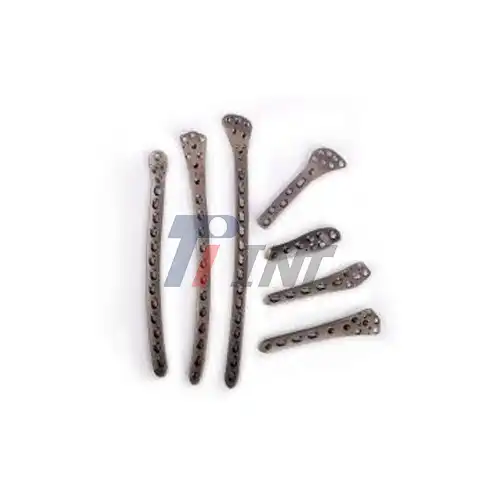
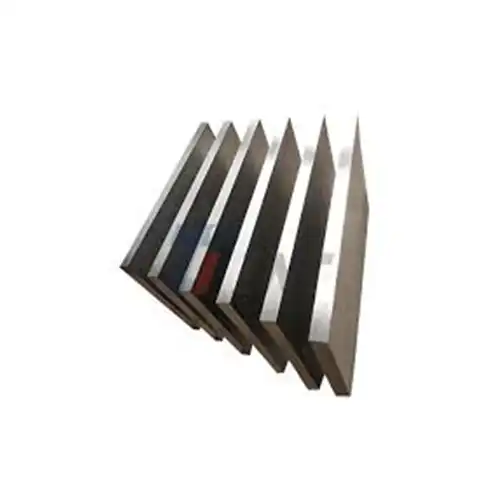






 2025-06-26 14:15:36
2025-06-26 14:15:36
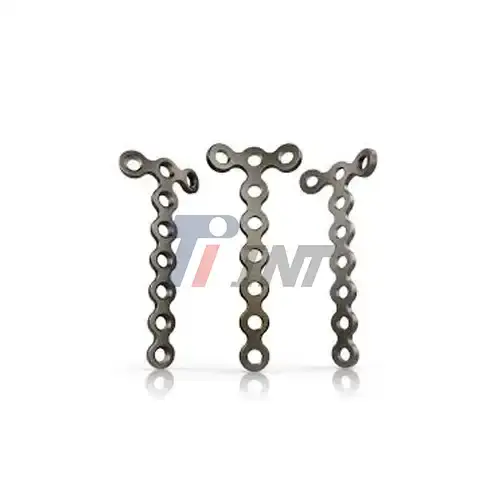
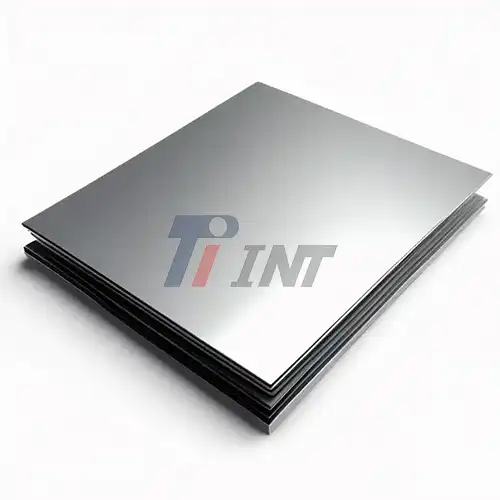
_1753427753918.webp)
_1752463324629.webp)
_1751956867796.webp)
_1751956503238.webp)
_1750664157440.webp)
